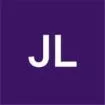- within Intellectual Property and Law Practice Management topic(s)
Despite the return of a known pro-business administration, employers can expect changes in workplace safety and health regulations in 2025 to be coupled with significant uncertainty. Challenging questions about how the courts' increased role in agencies' authority to regulate could impact the timing and direction of OSHA initiatives. The national heat safety rule, upcoming draft regulations on workplace violence prevention in the healthcare industry and addressing the ongoing quorum issue at the OSHA Review Commission are just a few of the agenda items that will likely experience some churn before being fully resolved.
Takeaways
- Enhance compliance programs.
- Promote mental health and psychological safety.
- Develop heat illness prevention plans.
- Leverage AI and technology.
- Stay informed on state-specific regulations.
- Implement workplace violence prevention measures.
Key OSHA + Cal/OSHA Initiatives
OSHA: Heat Stress Standard
Comment period for OSHA's proposed rule issued in August addressing heat injury and illness prevention ended 12.28.24:
- Heat trigger requires additional heat safety measures when the heat index reaches 90°F.
- Mandatory paid rest breaks of at least 15 minutes every two hours in cool areas.
- Employers must actively monitor employees for signs of heat stress.
This rule will likely be dramatically curtailed or discarded entirely under the Trump Administration, but employers should be mindful of state-level safety regulations such as Cal/OSHA's recent indoor heat safety regulations.
OSHA: Guarding Standard
A case involving the death of a poultry plant worker caught in an eviscerator machine (Mar-Jac Poultry MS LLC v. Su, 5th Cir., No. 24-60026) is an opportunity for the courts to clarify the compliance standard for how machines should be guarded:
- A "specification standard" that specifically articulates safety requirements?
- Or a "performance standard" that does not specify how a company should comply, which provides the employer with some discretion on how to comply?
Oral arguments were held on 10.08.24.
OSHA: Walkaround Rule
- Effective 05.31.24, the rule allows third parties, including union officials, to accompany OSHA compliance, safety and health officers on workplace inspections at an employee's request.
- Ongoing court challenges that, after Loper Bright, may result in the rule being invalidated or set aside, are likely.
California/OSHA: Senate Bill 1350
- Effective 07.01.25, the bill grants Cal/OSHA authority to enforce health and safety regulations in private homes that employ domestic workers.
- There are exceptions for publicly funded household domestic service, family daycare homes and privately employed individuals performing ordinary domestic household tasks.
California/OSHA: Assembly Bill 2975
Requires amended standards to be adopted by 03.01.27 for hospitals to use automatic security mechanisms, devices or technology to screen and identify instruments capable of inflicting injury or death.
Other Trends
- Smart technology like wearable sensors, smart helmets, AI monitoring systems.
- Continuing focus on mental health and wellness.
- Home office safety for remote workers.
The content of this article is intended to provide a general guide to the subject matter. Specialist advice should be sought about your specific circumstances.

